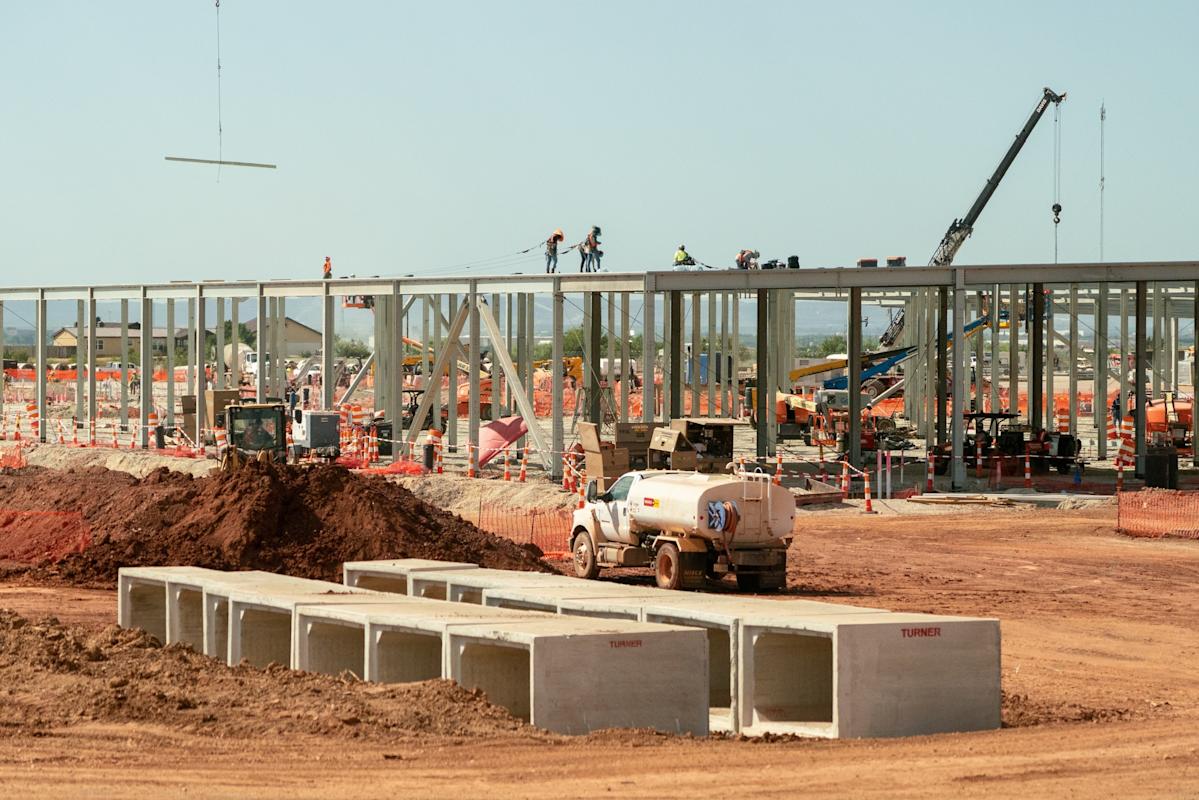OpenAI Asks US to Expand Chips Tax Credit to AI Data Centers
Construction at the Stargate AI data center in Abilene, Texas in September.
(Bloomberg) — OpenAI has asked the Trump administration to revamp a Chips Act tax credit to help lower the cost of artificial intelligence infrastructure, as the startup explores additional ways the US government can support an industrywide data center build-out for AI.
Most Read from Bloomberg
In a letter last week to White House Office of Science and Technology Policy Director Michael Kratsios, OpenAI Chief Global Affairs Officer Chris Lehane suggests the administration work with Congress to expand a 35% chips-focused tax credit to AI data centers, AI server producers and electrical grid components, such as transformers and the specialized steel used to produce them. The letter is dated Oct. 27, according to a copy posted online by the company.
Broadening the tax credit will “lower the effective cost of capital, de-risk early investment and unlock private capital to help alleviate bottlenecks and accelerate the AI build in the US,” Lehane said in the letter.
The letter, which has not been widely covered, offers added clarity into the role OpenAI thinks government should play to help offset the risk from costly investments in AI. OpenAI alone has committed to spending $1.4 trillion on data centers and chips to build more advanced AI systems and support wider adoption of the technology. Those spending plans have drawn scrutiny as the unprofitable startup pursues creative financing arrangements to support it, including deals that have been criticized for being circular.
Earlier this week, OpenAI Chief Financial Officer Sarah Friar alarmed some industry watchers by hinting at a role for the US government to “backstop the guarantee that allows the financing to happen.” Soon after, Friar and OpenAI’s Sam Altman took pains to clarify her remarks, stressing that she had misspoken and that the ChatGPT maker was not seeking a bailout for its infrastructure commitments.
The Trump administration has dismissed the idea of a financial backstop for AI companies, according to US officials, after Friar’s remarks raised questions about the prospect for a bailout. White House AI and crypto czar David Sacks also posted Thursday: “There will be no federal bailout for AI.”
Altman, in a social post Friday, said an effort to revitalize the US chip industry “across the entire stack — fabs, turbines, transformers, steel, and much more — will help everyone in our industry, and other industries (including us).”



Leave a Comment
Your email address will not be published. Required fields are marked *